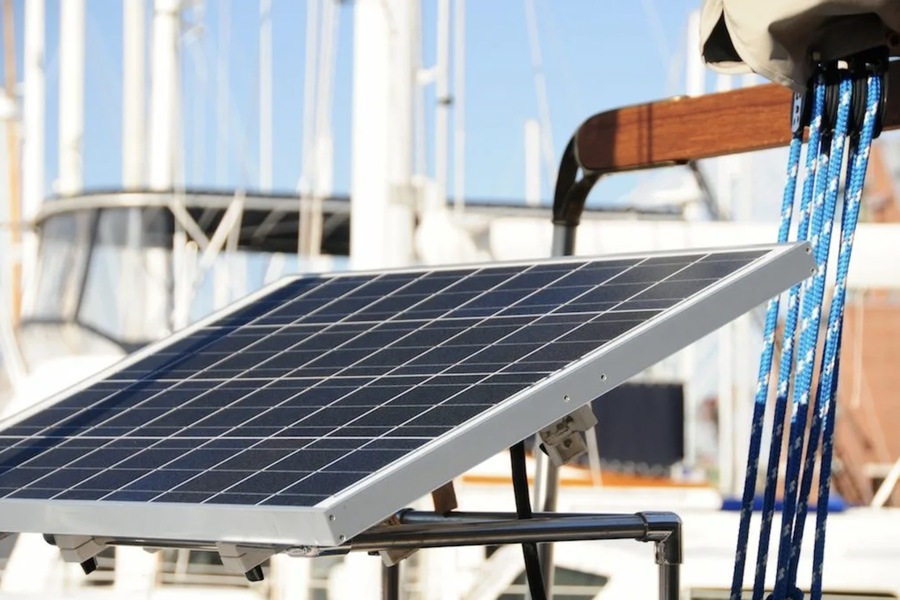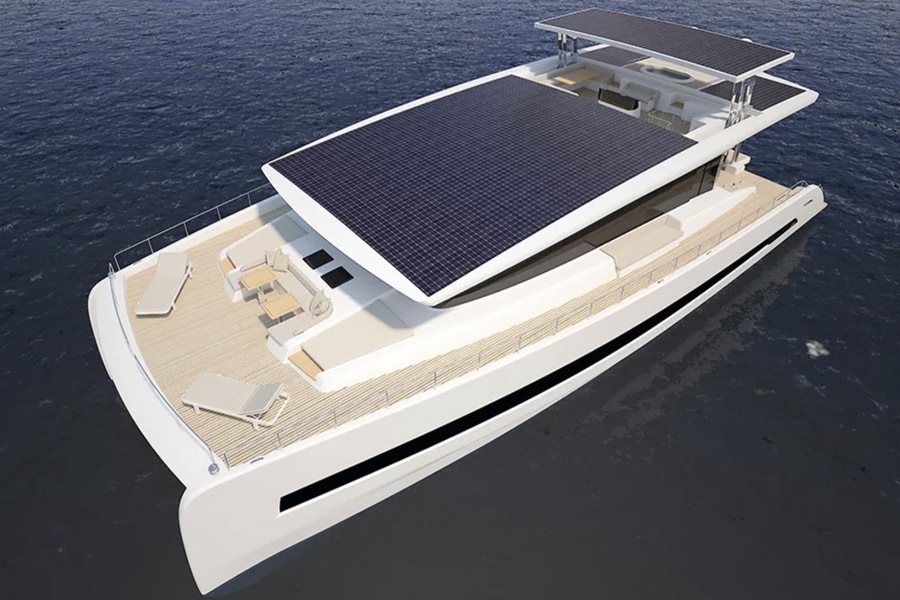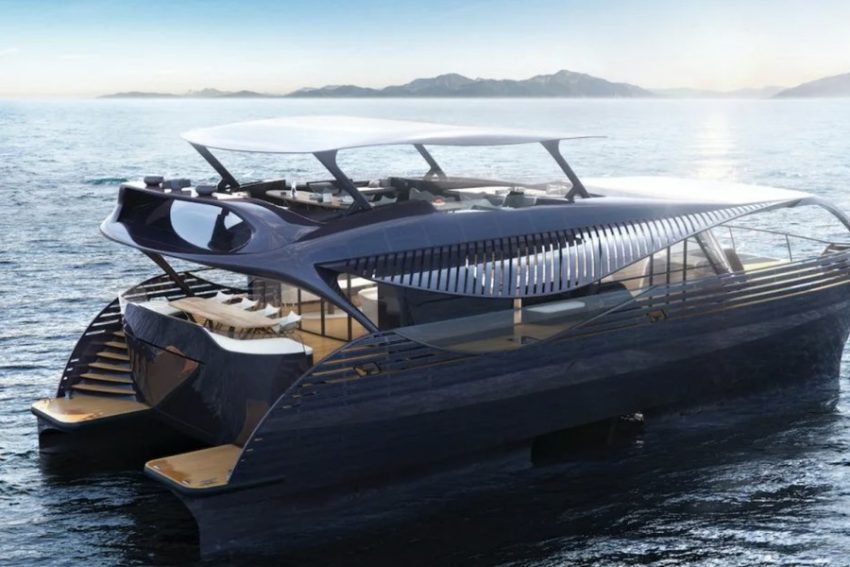Yachting has long been associated with luxury, adventure, and the thrill of open waters. However, as with many industries today, yachting is undergoing a transformation driven by the urgent need for environmental sustainability, energy efficiency, and improved technological advancements. Gone are the days when owning a yacht was merely about status and luxury; now, it’s also about embracing cutting-edge technologies that enhance the overall experience while reducing the environmental footprint. From solar panels and hybrid engines to advanced materials and waste management systems, the yachts of the future, including those offered by Seven Yachts are a blend of innovation, luxury, and responsibility.
Yachts, once primarily powered by diesel engines that emitted significant greenhouse gases, are now becoming greener and more efficient as yacht builders and engineers focus on minimizing the environmental impact of maritime activities. Through the integration of renewable energy sources, eco-friendly engines, lightweight materials, and smart technologies, the future of yachting promises to revolutionize the industry. Let’s delve into the various groundbreaking technologies shaping the yachts of tomorrow.
Solar Panels: Harnessing the Power of the Sun
One of the most significant and transformative technologies driving the development of future yachts is the incorporation of solar panels. Solar energy is increasingly being adopted in various industries, and yachting is no exception. Yachts, by their very nature, spend much of their time exposed to the sun, making them perfect candidates for solar energy harnessing. Solar panels are installed on the roof or other available surfaces, converting sunlight into usable electrical energy. This energy can power everything from onboard systems and navigation equipment to lighting and entertainment systems, significantly reducing the yacht’s reliance on traditional fuel-powered generators.
The Benefits of Solar Panels
The advantages of using solar panels on yachts are immense and contribute directly to both environmental sustainability and operational efficiency. First and foremost, solar panels offer a renewable and sustainable energy source that significantly reduces fuel consumption and, consequently, carbon emissions. This makes solar-powered yachts more eco-friendly, aligning with global trends toward greener practices in industries such as transportation and leisure.
Second, modern solar panels are designed to be highly efficient. Unlike older models, which required direct sunlight to function effectively, today’s panels can convert energy even in low-light conditions. This ensures that solar-powered yachts can still generate electricity during overcast days or in regions where sunlight may be limited for part of the year.
Third, solar panels require minimal maintenance and have a long operational lifespan. Yacht owners can benefit from lower energy costs over time while also reducing the noise pollution typically associated with running fuel-powered generators. The absence of noisy engines creates a serene onboard experience, allowing passengers to fully enjoy the peacefulness of their maritime journey.

Hybrid Engines: A New Era in Yachting Propulsion
In addition to solar panels, hybrid engine technology is emerging as a cornerstone in the design of eco-friendly yachts. Hybrid engines, which combine traditional diesel engines with electric propulsion systems, represent the future of efficient and sustainable yachting. These systems allow yachts to operate using electric motors at lower speeds or during short trips, switching to diesel power when higher speeds or longer distances are required. By alternating between power sources, hybrid engines help reduce fuel consumption and emissions, offering yacht owners an environmentally responsible way to enjoy the seas without sacrificing performance.
The Design and Benefits of Hybrid Engines
Hybrid engines feature both diesel and electric components that work together to provide propulsion. At lower speeds, such as when maneuvering in marinas or cruising through environmentally sensitive areas, the electric motor takes over, offering a quieter and emission-free experience. At higher speeds or during long-distance voyages, the diesel engine kicks in, ensuring that the yacht maintains its performance capabilities while covering extended distances.
One of the most appealing aspects of hybrid engines is their ability to drastically reduce fuel consumption. Yachts typically require significant amounts of fuel for long journeys, which contributes to high operating costs and environmental pollution. However, by using electric motors for a portion of the journey, hybrid yachts can conserve fuel, leading to significant cost savings over time. In addition, hybrid engines comply with increasingly stringent environmental regulations, making them a preferred choice for navigating areas with strict emissions policies, such as marine reserves and coastal zones.
Advanced Materials: Lightweight and High-Performance
The use of modern composite materials like carbon fiber and fiberglass in yacht construction is another significant leap forward in yacht technology. The hull and superstructure of future yachts are increasingly being built from lightweight, durable materials that not only enhance the yacht’s performance but also contribute to its sustainability. Carbon fiber, in particular, has revolutionized yacht design by offering a combination of lightweight structure and immense strength, making it ideal for reducing the yacht’s weight and improving its speed, maneuverability, and fuel efficiency.
The Advantages of Using Composite Materials
Using advanced materials like carbon fiber and fiberglass in yacht construction offers numerous benefits. Firstly, these materials significantly reduce the weight of the yacht, which directly impacts fuel consumption. A lighter yacht requires less power to propel through the water, resulting in better fuel efficiency and lower emissions.
Secondly, carbon fiber and fiberglass are known for their strength and durability. They are resistant to corrosion and wear, which is particularly important in the harsh marine environment where constant exposure to saltwater and sun can degrade traditional materials. These composites are also highly customizable, allowing yacht designers to create sleek, modern, and aesthetically appealing designs that reflect the luxurious nature of yachting.
Thirdly, the use of composite materials enhances the overall safety of the yacht. Carbon fiber, for example, has a high strength-to-weight ratio, providing a robust structure that can withstand the pressures of high-speed travel and challenging weather conditions. This added strength also improves the yacht’s ability to handle longer voyages in open waters, where the environment can be unpredictable.
Waste Management: Minimizing Pollution
As the yachting industry moves towards greater environmental responsibility, managing waste efficiently has become a priority. The future of yacht design includes the integration of sophisticated waste management systems that minimize the impact of human activity on the oceans. These systems are designed to separate, recycle, and dispose of waste in an eco-friendly manner, ensuring that nothing harmful is released into the marine ecosystem.
Innovations in Waste Management
Waste management systems on future yachts will include advanced solutions for handling both solid and liquid waste. For instance, organic waste can be processed through systems that convert it into compost or usable energy, reducing the amount of waste that needs to be stored or disposed of at port. Additionally, gray water (from sinks, showers, etc.) and black water (from toilets) can be treated and purified before being discharged, significantly reducing water pollution. Many future yachts will also feature waste incineration systems that can convert non-recyclable materials into ash, minimizing the environmental footprint.

Automation and Control Systems: Enhancing Safety and Comfort
Automation and control technologies are another area where yacht design is rapidly evolving. These systems simplify yacht management, making it easier to control various onboard systems from a central interface. Advanced automation technology will allow yacht owners and crews to control navigation, climate systems, lighting, and even entertainment systems with the touch of a button, enhancing both comfort and safety.
The Role of Automation in Yachting
Automation plays a crucial role in improving the onboard experience for both the crew and passengers. With integrated systems for navigation, communication, and monitoring, yacht operations can be managed more efficiently and safely. Smart sensors can provide real-time data on everything from fuel levels to weather conditions, allowing the crew to make informed decisions that ensure a smooth voyage. Additionally, automation reduces the likelihood of human error, further increasing safety on board.
For passengers, automation enhances convenience and luxury. From controlling the lighting and climate in their cabins to accessing entertainment systems and adjusting the yacht’s route, passengers can enjoy a seamless and personalized experience while at sea.
Conclusion: A Future of Innovation and Sustainability
The future of yachting lies at the intersection of luxury, technology, and environmental responsibility. With the integration of solar panels, hybrid engines, advanced materials, waste management systems, and automation technologies, yachts are becoming more sustainable, efficient, and comfortable than ever before. These innovations not only offer significant benefits to yacht owners—ranging from reduced fuel costs to enhanced onboard comfort—but also contribute to the preservation of our oceans and marine ecosystems.
In places like Dubai, where the demand for luxury yachting experiences is ever-growing, companies like Seven Yachts are at the forefront of this technological revolution. Their 100-foot yacht, Medusa, for example, accommodates up to 25 people and features state-of-the-art technologies that reflect the very best in modern yacht design. With a rental price of AED 70,000 plus VAT per day, Seven Yachts offers a glimpse into the future of yachting, where luxury meets sustainability.
As we look ahead, the possibilities for yachting innovation are limitless. The yachts of tomorrow will not only provide unparalleled luxury and comfort but also play a pivotal role in protecting the environment. By embracing these cutting-edge technologies, the yachting industry is steering toward a more sustainable and adventurous future, where the thrill of the sea can be enjoyed without compromising the health of our planet.

Here you’ll find thoughts on lifestyle, digital work, side-projects, and staying grounded in a fast-paced city.

